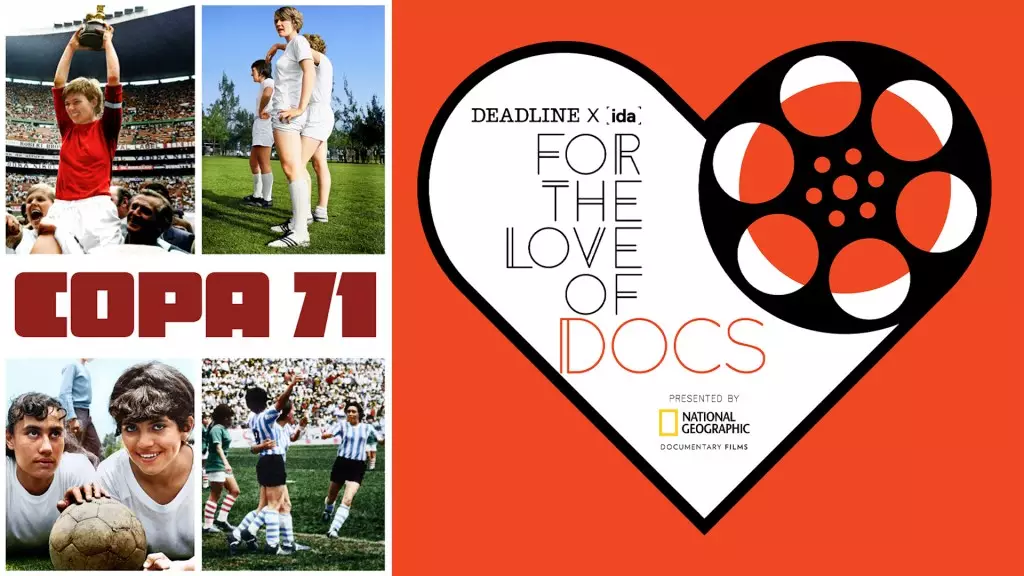In 1971, a groundbreaking event unfolded that would lay the groundwork for women’s soccer: the unofficial Women’s World Cup held at the monumental Azteca Stadium in Mexico City. With a staggering crowd of over 110,000 fans, the tournament created a momentous atmosphere, becoming the largest ever gathering for a women’s sporting competition. Yet, remarkably, this pivotal chapter in sports history has largely been relegated to obscurity. The documentary *Copa 71*, directed by Rachel Ramsay and James Erskine, seeks to revive this forgotten narrative and honor the legacy of the athletes who participated in it.
The film crafts a narrative filled with personal stories and reflections from the players and organizers, ensuring their sacrifices and triumphs are neither overlooked nor understated. Screened at numerous prestigious film festivals around the globe, *Copa 71* has sparked conversations about the complexities of gender in sports and the historical resonance of female athleticism that continues to echo today.
The origins of *Copa 71* stem from a happenstance conversation between documentary producer Victoria Gregory and her husband, who recounted a riveting radio piece about one of the England team members. This moment initiated a relentless pursuit of archival footage and testimonies from surviving players amidst a backdrop of a male-dominated soccer world that largely ignored the female game. In an era when women’s sports faced rampant media exploitation, finding former players willing to relive their past wasn’t easy; many felt uncomfortable and distrustful, unsure whether their story would be portrayed faithfully.
The documentary provides insights into these players’ lives, revealing their struggles with societal perceptions and the often hostile media landscape. As Gregory explained, many women had not even shared their experiences with their families, which added to the significance of the filmmakers’ efforts to build trust and communicate their commitment to an honest representation.
A Mirror to Modern Issues
*Copa 71* is not merely a nostalgic trip down memory lane; rather, it serves as a powerful reflection of ongoing gender inequality in sports. The themes addressed in the documentary resonate profoundly with contemporary events, including recent incidents involving high-profile figures in women’s sports, such as the unsettling behavior by Luis Rubiales towards a Spanish player during the 2023 medal ceremony. Such incidents spotlight the pervasive issues of power dynamics and the exploitation of female athletes that persist even five decades after the Mexico tournament.
In their conversation, the filmmakers emphasize the cyclical nature of these issues, asserting that debates surrounding financial independence, self-expression, and the treatment of female athletes remain strikingly relevant today. By tracing the lineage of these struggles back to Copa 71, they highlight how little progress has been made, urging audiences to acknowledge that the fight for equitable treatment continues.
The dialogue around economic disparities in women’s sports, as illuminated by the documentary, reveals a landscape marred by exploitation. The Mexican women’s national team went on strike during Copa 71, demanding fair compensation and recognition for their participation. While the event attracted significant media attention and brought in revenue, the players remained uncompensated. Director Erskine underlines this discrepancy, emphasizing that the story transcends financial inequities and reveals broader themes of control and authority.
This imbalance not only speaks to monetary issues but also highlights the underlying societal dynamics that dictate the narratives surrounding female athletes. The documentary invites an examination of how control manifests in both overt and subtle ways, ultimately impeding women’s right to self-determination in their sports careers. The film compellingly asserts that the right to self-expression, whether in sports or other facets of life, must be fiercely protected and promoted.
Through *Copa 71*, the filmmakers aim to rekindle appreciation for the women who laid the foundation for modern women’s soccer. As audiences delve into the historical context, they begin to grasp the profound resilience exhibited by these athletes against a backdrop of adversity. Moreover, the documentary serves as an urgent reminder that the fight for equality is far from over. It not only chronicles a forgotten moment in sports history but calls for a reevaluation of how society perceives and supports female athletes in the present day.
As *Copa 71* gains recognition, it prompts essential discussions about the role of gender politics in sports and the shared responsibility of both media and organizations to uplift women’s stories. In celebrating the forgotten legends of 1971, we can cultivate a more equitable future for all athletes, ensuring that their voices are heard, their stories acknowledged, and their contributions celebrated, moving beyond the confines of historical erasure.

